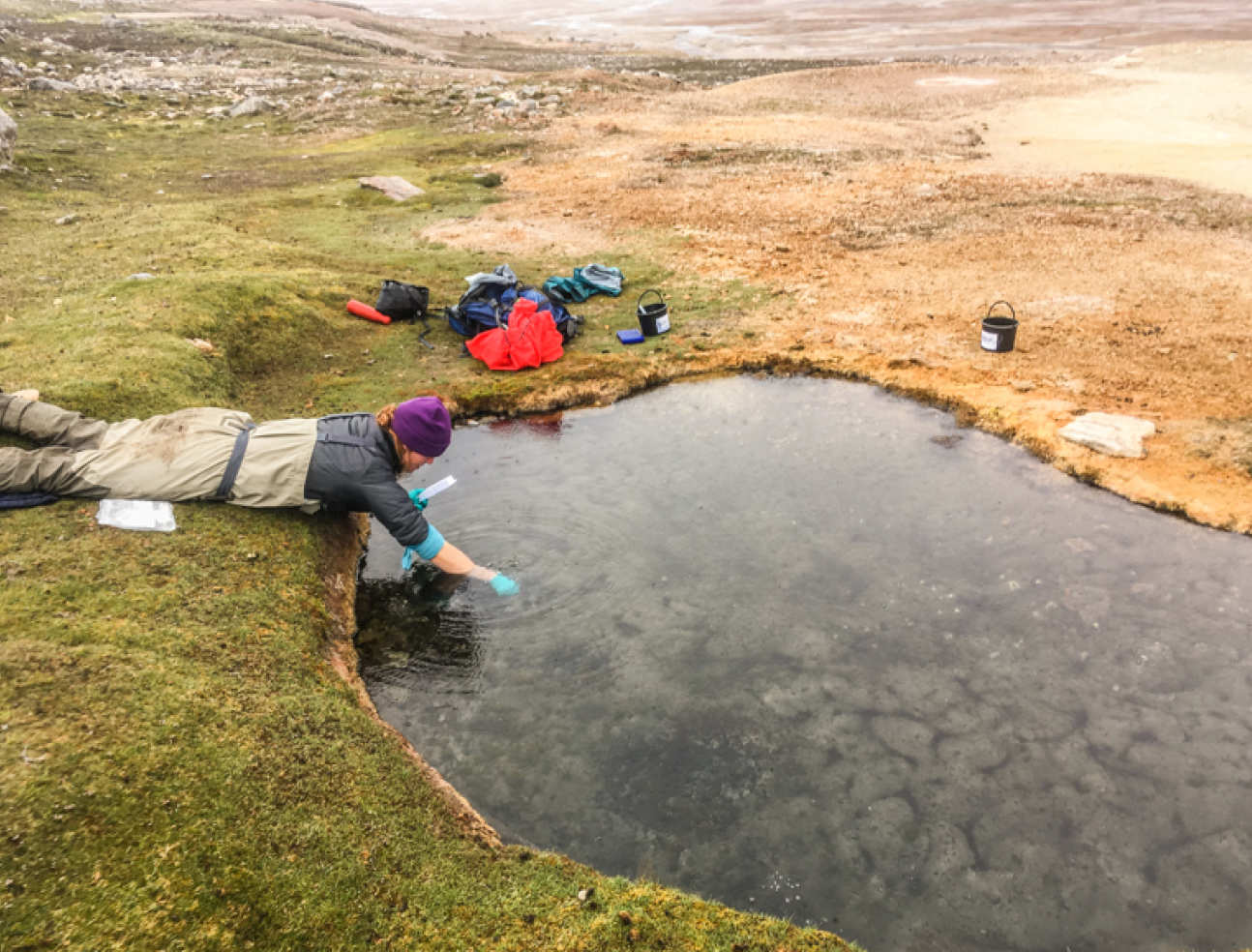Work package 4
Lead Investigator: Dr Alex Dumbrell
Lead Postdoctoral Researcher: Dr Kate Randall
Almost all of the planet’s biodiversity is microbial even though these organisms are invisible to the naked eye. Despite their small size, microbes are extremely abundant and central to driving key ecosystem processes and functions, such as macronutrient and biogeochemical  cycling (see work package 3). Understanding what controls microbial biodiversity, its functional roles, and how these will change in a warming world is therefore key to predicting ecosystem-level responses to climate change. Until recent advances in DNA sequencing technologies studying these organisms in natural systems was extremely challenging, if not impossible, but now it is both possible and relatively easy to simultaneously extract and read the DNA of all microbial species from any environmental sample (e.g. river sediment). This acts like a specific barcode, allowing us to identify microbes, their functional roles and to quantify the abundance of different species within samples. We will apply these “Next Generation Sequencing” methods to characterise microbial responses to warming via both natural and artificial experimental systems. Our dozens of geothermally warmed streams will be used to study the long-term response of microbial biodiversity to warming. This will be complemented by a series of highly controlled and highly replicated mesocosm and microcosm experiments, which will tackle shorter-term and transient responses in the field and laboratory. When complete, this project will yield the most complete, comprehensive and global-scale assessment of microbial responses to climate change at the molecular level and how this scales up toentire ecosystems.
cycling (see work package 3). Understanding what controls microbial biodiversity, its functional roles, and how these will change in a warming world is therefore key to predicting ecosystem-level responses to climate change. Until recent advances in DNA sequencing technologies studying these organisms in natural systems was extremely challenging, if not impossible, but now it is both possible and relatively easy to simultaneously extract and read the DNA of all microbial species from any environmental sample (e.g. river sediment). This acts like a specific barcode, allowing us to identify microbes, their functional roles and to quantify the abundance of different species within samples. We will apply these “Next Generation Sequencing” methods to characterise microbial responses to warming via both natural and artificial experimental systems. Our dozens of geothermally warmed streams will be used to study the long-term response of microbial biodiversity to warming. This will be complemented by a series of highly controlled and highly replicated mesocosm and microcosm experiments, which will tackle shorter-term and transient responses in the field and laboratory. When complete, this project will yield the most complete, comprehensive and global-scale assessment of microbial responses to climate change at the molecular level and how this scales up toentire ecosystems.
Contact us
If you have any questions about the project, or would like to find out more, please email Dr Michelle Jackson
Collaborate with us
We welcome other researchers to collaborate with us on the mesocosm project at Silwood Park through the AQUACOSM network.
See here : AQUACOSM